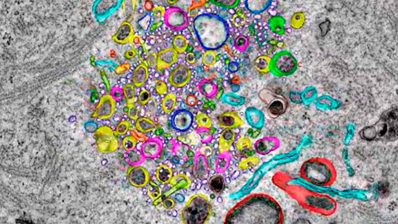Children whose mothers ate fish from one to three times a week during pregnancy were more likely to have a better metabolic profile than children whose mothers ate fish less than once a week. But the benefit declined if women ate fish more than three times a week.
This is the main conclusion of a study led by the University of Southern California (USC) and in which the Proteomics Unit from CRG-UPF and the Barcelona Institute for Global Health (ISGlobal) have participated.
Fish is a major source of omega-3 long-chain polyunsaturated fatty acids which are important for the developing fetus. That is why, although some fish — such as swordfish or mackerel — may contain high levels of mercury, their moderate consumption is recommended during pregnancy. Moderate consumption is important since if its frequency is increased above three times a week, it is likely that exposure to contaminants such as mercury will offset the beneficial effects of fish.
Mercury is a potent toxin that can cause permanent neurological damage. Spain is a country with relatively high exposure levels.
Researchers looked at 805 mother and child pairs from five European countries. The following data were obtained from each participating pregnant woman: frequency of fish consumption and levels of mercury exposure. On the other hand, when the children were between 6 and 12 years old, they underwent clinical examinations in order to calculate a Metabolic Syndrome score – a set of risk factors that help predict potential future cardiovascular disease.
Scientists also examined some inflammation biomarkers, such as cytokines and adipokines, in the children. These biomarkers contribute to the Metabolic Syndrome and this study was the first one to prove that the reduction of these biomarkers levels would explain the better metabolic health in the children of those mothers who do not eat fish more than three times per week.
Stratakis N, Conti DV, Borras E, et al. Association of Fish Consumption and Mercury Exposure During Pregnancy With Metabolic Health and Inflammatory Biomarkers in Children. JAMA Netw Open. 2020;3(3):e201007. http://dx.






